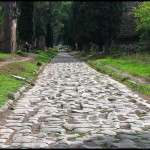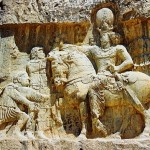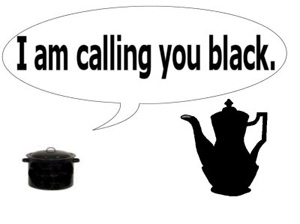In this installment of Terry Jones is a barbarian we look at the first two episodes, by which I mean I re-watch the first two episodes as a refresher and write down things I hate about them in a stream of consciousness rant as I watch. I then dress up my rant in paragraphs, touch one or two things up, add pictures because I’m creative and fun but mostly because I don’t trust you to remain focused without them. I then unleash my rant on the unsuspecting internet in the hopes it will frighten some small Celt loving children. I should mention before we begin that at the time of writing all 4 episodes of Terry Jones Barbarians are available in full on YouTube (though episode one at least ends up suffering from a significant time lag between sound and image by the end), normally I’d recommend supporting the creators, buying the DVD etc but………….don’t! please, please don’t! Terry doesn’t need your money and in doing so you would be funding a hate filled propaganda piece aimed at the naive (and probably young) layman, so yeah….f*ck that.
Finally I should mention that I am not against hard-hitting comparisons between various states and cultures in history that don’t pull punches, on the contrary I think we need more of that, it’s too easy, too safe and just too plain wrong to say just like we do in politics that their all as bad as each other and all the same, it’s a cop-out and it teaches us nothing. But for such comparisons to be truly valuable they have to be honest and they have to be fair and as a result probably quite nuanced, my principal problem with Terry’s barbarians is that it makes no attempt to do any of the above and indeed at times Terry seems to positively revel in his dishonesty.
Episode 1, the primitive Celts: This is probably the least offensive of the episodes and only starts moving from your typical and tolerable flashy obnoxious revisionism into outright politically


motivated fallacies over 20 minutes in, sucking the unsuspecting audience in to this atrocious series. In this episode the existence of two large and recently rediscovered wooden trackways within the so-called “Celtic world”, one in Ireland, one in Western Germany (this second locale is in an area that is funnily enough normally identified at this time with Germanic rather than Celtic peoples) dated to about the same time in the 100’s BC (In Ireland’s case the later half of said century, the German case is not specified), wooden trackways of considerably lesser scale existed elsewhere in the Celtic world. It’s more impressive than it sounds but based on this evidence Terry argues that the Celts beat the Romans to road building and were the first great road builders of Europe. Firstly there are Roman roads that predate the Celtic road they bothered to date, many Roman roads are of vast scale, They are normally made of stone and paved and many have endured the ravages of time to the modern era.
He then goes on to claim that the Celts unlike the Romans were not into dominating others, he provides no evidence for this view at all, doesn’t even try to argue it just states it out of the blue flat out and moves on, blithely ignoring that he started this episode relating how a Celtic tribe sacked Rome indeed it is clear that many Celtic tribes were warlike (He also notes the existence of Celtic societies in Turkey- though doesn’t mention how they got there, here’s a hint: it wasn’t by asking nicely). This is followed by praise of the Celtic world’s lack of a center and it’s small smattering of large towns over a very large area, again in comparison and contrast with Rome. In this comparison the Celtic world’s lack of center is portrayed more like an enlightened policy of federal decentralization (indeed later towards the end of the program he goes on to call the Celts or at the very least those of Britain a federation, basic knowledge of the Roman conquest alone reveals this for the fallacy it is) than the simple fact that there was never anything close to political unity in the Celtic world, states and tribes had their centers but these political units were seldom much larger than your average province in modern day France.
There was no Celtic state, the term is merely a catch all for a vast variety of peoples of iron age Europe, many of whom we know little about and who despite similarities used to justify the shared cultural label varied considerably from region to region, the exact extent of their differences because of our lack of information will likely never be understood. Jones is aware of this but this is definitely not the picture of the Celts he always chooses to draw, when it suits his agenda he talks of the Celts as if they self-identified as one people and acted as one political unit. Then we move on to the Gallic wars where Jones claims that Julius Caesar claimed that the Helvetti he destroyed in battle in the first phase of the Gallic wars were not a migrating people, his source for deriding Caesar on this count is Caesar’s own commentaries of the Gallic wars……so yeah….go figure, Also the tone very much implies that this migratory group was not dangerous, in the ancient world people migrations were usually very much so.
This is followed by the claim that Caesar needed to invade Gaul to pay back his debts, debts he may well have repaid after his earlier Spanish campaigns, there’s certainly no mention of them at this point, admittedly this part is nitpicking, one of Caesar’s motivations was certainly to get rich. Furthermore Terry Jones condemns Caesar for a hypocrite for defending a Roman ally in Gaul the tribe of the Aedui (actually he doesn’t mention the Aedui just sells the Gauls and no mention is made of defending an ally) from the Helvetti on the ground that they were both Celts, that line of reasoning makes as much sense as critiquing the Americans for helping the French against the Germans solely on the grounds that their both Europeans- true but meaningless, the purpose of it’s inclusion here is to make the Romans look bad by attempting to apply insipid modern nationalists sentiments to ancient Gaul (if not “the celtic world” at large) Caesar’s motives in Gaul were clearly imperialistic, I am not blind. But the conflicts of the Gallic tribes provided him good material to work with when it came to pretexts.
Credulity is really stretched when Jones uses a rich burial of a Celtic women in France centuries before Vercingetorix and 7th century (at absolute earliest) texts in Ireland to argue that between the two dates (a thousand years or so) Celtic society was not only more sexually egalitarian (In SOME ways this is likely even true but let’s just say that I don’t remember any Gallic chieftains from Caesar’s Gallic wars…..and there were a LOT of chieftains) but relying for the rest exclusively on projecting back in time (over 500 years..) from 7th century Ireland and across countries and seas that their society was superior and kinder in their provisions for the elderly, handicapped and children as well to contrast with this the truly horrible Roman (Greek as well, though Terry the very soul of fairness never mentions this Hellenic trait when it comes time to cover the Greeks) practice of infanticide by exposure.
Of course what good ol’ Terry fails to mention is that by the 7th century when we according to this very program obtain the first actual EVIDENCE for this more enlightened and compassionate view of the young, the practice had ceased being socially acceptable in mainstream Roman society, due in large part to the spread of Christianity, which also helped to develop more compassionate attitudes to the handicapped it is very much possible (indeed probable) that the spread of the same religion via the Roman empire to Ireland helped to develop these more compassionate social views, Rome and Christianity certainly helped spread the writing system by which all these enlightened social practices are revealed to us.
Finally as Terry says after the rest of the Celtic world had been conquered by Rome, Rome invaded Britain “where the spirit of freedom still lived on” and a consulted Celtic scholar (no Roman historian is interviewed in this episode) calls the druids freedom fighters…..I’m sorry were all Celtic states some form of democracy? And if any where would we describe them as egalitarian? This is the first I’ve heard of this. Roman tales of Druidic human sacrifice are mentioned than excused, dismissed and brushed under the carpet on the grounds simply that Roman sources are biased and the Romans were meanies too- If this excuse doesn’t sound familiar yet, watch the next three episodes we are going to hear it over and over and over again and of the Romans themselves are never allowed the same kind of excuse.

Episode 2: The Savage Goths: This episode despite it’s title is divided into roughly three parts looking at three cultures in turn, after a brief introduction we move to the Germanic tribe’s of roughly

west Germany of the 1st century AD then to Dacia, principally in the second century AD then finally to the titular Goths, those of Adrianople fame and those of Alaric. The first two sections barring one or two major gafe’s are not terrible by doco standards (though the Dacian section is helped out by being brief), just like in the previus episode we work up into paroxysms of awfulness by the end. Once again we are off to a slow if more bombastic start, complete with multiple shots of a stationary actor with a big nose and wearing a helmet starring vacantly into the camera, yep this still passes for good production values for a documentary (hey at least violence and the sacking of cities isn’t normally portrayed by replaying the same footage of a pot falling and breaking in slow motion over and over again, things like that are very common in ancient themed doco’s).
As usual the importance of the battle of Teotoberg Wald, at least in the short to medium term is exaggerated and far be it from me to criticize Terry for saying something that could be deemed complimentary to the Romans but Rome did not have as Terry claims the first ever professional army, on that count Phillip II’s Macedon beats them to the punch and possibly other states depending on how you define professional. The Roman policy of incorporating local elites is described as a con, perhaps copying Tacitus and taking his view uncritically, Tacitus himself being almost certainly of provincial (and probably Gallic) aristocratic background and new to the senate had much reason to be glad for this policy himself and his criticism of the furtherment of this policy to new territories should not be taken uncritically, there’s nothing the nouvou rich like better than forgetting their origins after all.
Also Terry attaining recognition as a member of the class of Equites was never the equivalent of being knighted, that’s a pretty basic thing to get so very very wrong……..you conceited git. Later he describes the contrast between Germany between the Rhine and Elbe (roughly) and provinces like Syria (and Roman territories in general) in regards to development “it’s not that they were more primitive” let me stop you right there Terry that’s exactly what it is, where not saying it’s anyone’s fault or that they were worse people but their society was less economically developed and less effectively organized, that is a demonstrable fact.
Superior cultural resistance of the Germans to Roman culture and domination is claimed on the basis of one unusually successful revolt in the early stages of Roman consolidation,there had been many such revolts in earlier regions during the early phase of consolidation (successful and otherwise) and from all accounts the success of this one was due primarily to the cunning of the rebel leader (Arminius) and the incompetence of the Roman commander (Varus) it’s enduring success (in keeping Roman administration out not Arminius/Hermann in power) it could be argued was due more to lack of Roman willpower to continue the policy of annexation (Rome demonstrated clearly that they were still very much as terry would put it “top dog”) than any purported special love for independence on the part of the Germans.
An argument could be made (could but isn’t) that the difference between the Germans and Roman society was greater in many ways than that between the Romans and most culture’s they succeeded in incorporating into their state on account of the Germanic tribe’s greater separation from Mediterranean culture and civilization, plausible enough but definitely contentious and in all likelihood not a complete explanation, to his credit Terry doesn’t go so far as claiming it was or that Rome lacked sympathizers in Germania- though he does go so far as to at the very least heavily imply that those who fought Rome fought for liberty (again as if Germanic tribe’s were all democracies with a charter of human rights) and those for Rome out of greed, on the basis of an uncritical reading of Tacitus (an activity Terry is very fond of) ignoring political points Tacitus was often trying to make at home and Roman stereotypes of the noble savage that Tacitus and others used as a mirror to make critiques of contemporary Roman society compared also to an idealized Roman past.
One theory about the location and nature of the battle of the Teutoberg forest is not portrayed adequately as just one theory considering the controversy over the battle. judgement is layed on thickly in Terry Jones description of Germanicus’s punitive expeditions into Germania for it’s brutality, mention earlier of German raiding into roman Gaul contains no such overtones and is not dwelt on.

Terry Jones insipid claim referring to Trajan’s column that “there can’t be many monuments in the world that celebrate an act of genocide”…………………..WHAT!!!?

want to FU*KING bet you Charlatan! If you add monuments celebrating massacres and conquests to the list (the word genocide is thrown around much too flippantly these days) than that list gets mighty long. Loaded with hyperbole as it is, soon after that statement of arrant nonsense the beginning of this episode’s second part- the part on the Dacians, goes well enough (I am not by any stretch of the imagination an expert on Dacia) until Terry claims that strained relations between Dacia and Rome only broke down into war soon after the ambitious and imperialistic Trajan became emperor, ignoring the prior conflict under emperor Domitian not so very long ago during which Decebalaus (probably spelt that wrong, don’t care) the Dacian king at the time of Trajan’s wars had led armies.
Terry must surely know this but what’s the truth compared with a neat little parable about the evils of Imperialism. The degree to which the conquest of Dacia financed the grandeur of Ancient Rome that remains visible today is overstated blatantly and irresponsibly (not so subtly visually attributing the funding for buildings not financed by the conflict to said conflict), this section is topped off with a not so subtle allusion equating Trajan’s conquest of Dacia with the Iraq war……….*takes a deap breath* ORIGINAL!!!!!.
Now begins the third part, our Gothic epilogue and now where in territory I find more familiar, and it is here finally that we see Terry interview an unambiguously Roman historian for the first time- albeit one who is also a historian of the Goths and other late Antique barbarian peoples, and one of some prestige at that, Peter Heather. It is true that the Romans mishandled the famous Gothic migration of refugee’s across the Danube during the reign of Valens and that the officials on the spot engaged in corruption and local merchants in exploitation (though our sources may have exaggerated the incompetence and venality of said people in much the same way they may have done so with Varus to add drama and a moralizing element, after all it’s often safer to demonize failures, particularly if they didn’t survive to give their own version). However it is also true that the Romans resources were stretched by the vast numbers of migrants and they only admitted one of the large groups that crossed the Danube at this time by choice, others taking advantage of the lack of manpower to police the Danube frontier that caused by the Romans having to take care of this large force of frankly dangerous refugee’s.
Now we move on to Alaric contrary to what Terry says (bet you thought I’d never say that….) we know nothing of his life before he emerges as a commander of Gothic soldiers in the Roman army but Terry’s claim that he migrated with one of the aforementioned groups is nevertheless plausible. The claim that Alaric was a leader of a Gothic people and who decided to play Imperial politics for the selfless goal of securing land for his refugee people is complete and utter drivel. Unfortunately it is often repeated drivel, with many supporters in academia (at least this time Terry has an excuse) mentioned in many history doco’s and books on Roman history including Peter Heather’s own book on the fall of the Western Empire, Heather is clearly a big influence on Jones here.
Alaric enters history as a general and there’s precious little evidence he was ever the leader of a distinct and pre-existing people (certainly not before the death of Stilicho at any rate), or a people period. In any case, either as Heather believes (and likely as Terry does too) the Romans gave the aforementioned Gothic migrants land as part of the peace treaty ending the war between them and the Romans and thus if Alaric’s goths are from the same group then they already had land, or they were broken up as a people in which case what pre-existing tribal federation is Alaric meant to be leading? no comparable group exists and if Alaric’s forces are composed of Goths who entered the empire by more conventional means then well they either already had land or it certainly it wasn’t a case of a people looking for a home, more that of mercenaries looking for a better deal, in a flash changing Alaric’s motivations from altruisim to greed and lust for power- motives much more in keeping with the late empire’s political norms.
While it is nice to redress stereotypical images of the Gothic sack as apocalyptic modern apologists can go too far, Terry goes so far as to say: “They didn’t rape or murder”, this is quite frankly

insulting and few apologists have gone close to that far, 40,000 frustrated soldiers looting a large city, a genteel sack (which it seemingly was) ladies and gentlemen is still a sack! After the sack Terry Jones is at pains to point out how life went back to normal “slaves became slaves again, women became the property of men again and unwanted children could be dumped upon the town rubbish heap again- which was the tradition in ancient Rome. In the arena wild animals were once again slaughtered to the delight of the crowd and prisoners were once again torn to pieces by the wild animals”……………..LYING TOAD FACED SH*T!

At the time of Alaric’s sack of Rome (and Terry’s knowledge of things like Alaric’s religion and clear influence from Peter Heather would suggest he would know this) due to the influence of Christianity (though I suspect they were slowly going out of favour regardless) gladiatorial matches etc were banned and had been for some time, likewise due to the influence of Christianity Roman (and Greek etc) attitudes to infanticide had changed, it was no longer acceptable in mainstream society (doubtless it still happens, anywhere were there are poor people and/or unwanted pregnancies and/or “handicapped” children infanticide will happen, though also as previously noted Christianity changed attitudes to them as well) I’m actually in favor of this dark side of the classical world (Greece was at LEAST as guilty as Rome when it comes to infanticide and then there’s the Phoenicians…..who you’d think would get a mention somewhere but…..oh well they have “Carthage: the Roman holocaust” to make up for their omission) being discussed more but not like this, not when the odium is applied solely to the Roman empire and regardless of time period.
Women at least in earlier Imperial times could own property and run businesses, they were never remotely close to equal to men in rights and its certainly possible that by the time of Alaric’s sack of Rome women’s rights may have declined, even so I know it is a stretch to say they were on the same level of slaves, Terry is of course silent on the rights of Gothic women, as he is with Dacian and 1st century Germanic ones. Real inspiring way to top off an episode Terry starting slow as always but as before coming back to comparing the Christianized and Romanised barbarians to classical era Romans……and still getting it horribly wrong. But you say it best Terry not just for this but for all your episodes when you wrap the episode up with this gem “The Romans feared and despised the barbarians for their otherness. But human beings are just human beings and thinking in terms of us and them isn’t really a very civilized thing to do, in fact it’s downright barbaric” Couldn’t have said it better myself…….you barbarian scum.

